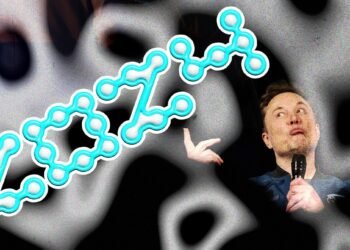At the recent Microsoft Ignite 2024 event, the tech giant announced a partnership with Atom Computing to drive the commercial adoption of quantum technology. Just two months later, the collaboration achieved a new world record by entangling 24 logical qubits. This achievement marks a significant milestone in the journey towards fault-tolerant quantum computing. Microsoft and Atom Computing plan to launch a commercial quantum computer by 2025, which will unlock advancements in areas such as chemistry and materials science.
During the event, Microsoft CEO Satya Nadella expressed his excitement about the progress made in the journey towards large-scale quantum computing. He announced that the partnership had achieved the most performant logical qubits on record and that they were bringing a new generation of reliable quantum hardware to customers. This achievement marks a new era in quantum computing.
Nadella also highlighted the importance of linking these logical qubits together to form the world’s most powerful quantum machine foundation. He stated that with 100 reliable qubits, they would achieve a scientific quantum advantage. To enable next-generation quantum computers, Microsoft is collaborating on a commercial offering that integrates scientific solutions in Azure with a quantum computing platform and a virtualization layer.
In a major quantum result, Microsoft and Atom Computing demonstrated 24 logical qubits entangled with advanced error correction and performed large-scale quantum operations using a 256-qubit neutral atom processor. This is a significant step towards scalable quantum systems. Once quantum computers become commercially available, it is likely that many may not fully grasp how rapidly things will evolve. This could lead to major changes in various industries.
Quantum computing promises to tackle complex problems that classical computers struggle with, such as materials science, cryptography, and drug discovery. Microsoft is at the forefront of developing topological qubits, which are theorized to be more stable and less error-prone than traditional qubits. This is a crucial development in the field of quantum computing, as qubits are highly sensitive to errors.
Overall, the partnership between Microsoft and Atom Computing has achieved a significant milestone in the journey towards commercial quantum computing. With the promise of reliable quantum hardware and advancements in areas like chemistry and materials science, the future of quantum computing looks promising.



















